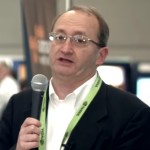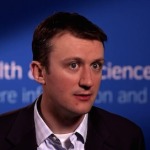In this video from the Cycle Computing the HPC in the Cloud Educational Series, Jeff Layton, HPC Principal Architect at Amazon Web Services, explains concepts and options around using storage in the AWS Cloud.
Cycle Computing’s Rob Futrick to Keynote DataCloud 2015 in Austin
Today Cycle Computing announced that their CTO, Rob Futrick will be the Keynote speaker at DataCloud 2015, the 6th International Workshop on Data Intensive Computing in the Clouds. The event takes place Nov. 15 in conjunction with SC15 in Austin. In his talk, Futrick will pose the question, “Why would you NOT use public clouds for your big compute workloads?”
Cycle Computing Joins Cloud Native Computing Foundation
Today Cycle Computing announced its participation in the Cloud Native Computing Foundation. Through its membership, Cycle Computing will enable enterprise users with big compute problems to fully leverage the advantages of cloud by running their workloads on cloud native software. Finance, research and manufacturing organizations are increasingly moving their high performance and high throughput workloads to the cloud; Cycle and the Cloud Native Computing Foundation will bridge the gap from internal infrastructure to cloud to ease and accelerate their transition.
Slidecast: Cycle Computing Powers 70,000-core AWS Cluster for HGST
Has Cloud HPC finally made it’s way to the Missing Middle? In this slidecast, Jason Stowe from Cycle Computing describes how the company enabled HGST to spin up a 70,000-core cluster from AWS and then return it 8 hours later. “One of HGST’s engineering workloads seeks to find an optimal advanced drive head design, taking 30 days to complete on an in-house cluster. In layman terms, this workload runs 1 million simulations for designs based upon 22 different design parameters running on 3 drive media Running these simulations using an in-house, specially built simulator, the workload takes approximately 30 days to complete on an internal cluster.”
Conducting 264 Years of Research in Just 18 Hours
“Stowe shares an example of a 156,000-core workload run in eight regions of the globe that produced 2.3 million hours of computational chemistry research (264 years’ worth) in just 18 hours. He says this capability will transform both access patterns and the kinds of research that pharmaceutical, life sciences and healthcare companies are able to tackle when it comes to analyzing genomes.”







